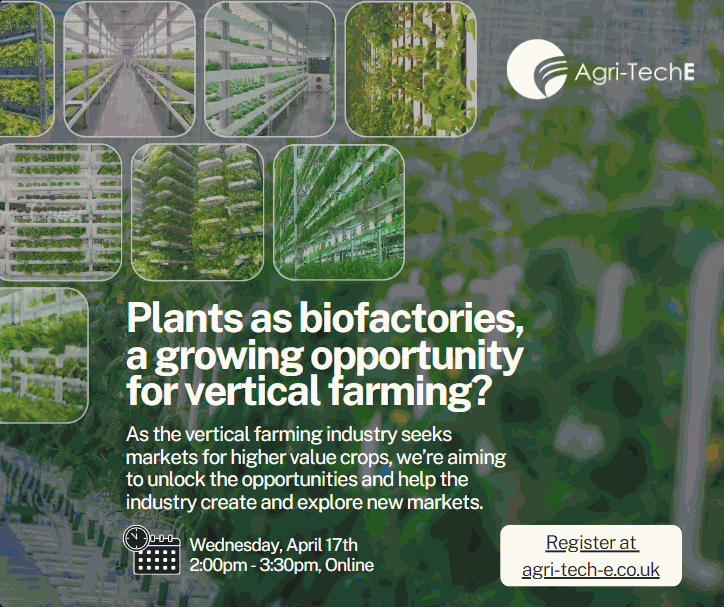From farmer to pharma, flavourings and colours, industrial feedstocks and more – let’s leverage the unique production capabilities of plants to go beyond babyleaf and into plant-based biofactories.
Plants have been used for food, fibre, fuel and medicines for millennia. Their ability to act as Nature’s own pharmacist, store cupboard and chemistry set is well documented but not always exploited in the most effective or sustainable ways.
Large scale outdoor production of plants which might produce only tiny amounts of a highly desired chemical is highly inefficient, not to mention expensive and may be subject to crop failure or issues around quality and consistency.
New Markets Through Controlled Growing Systems
Thanks to advances in technologies around Controlled Environment Agriculture, and the ability to enhance or alter the chemicals produced in plants, the potential exists to produce high value materials in plants at scale, under tightly managed growing conditions.
We know there is some science that still needs doing to ensure bio-equivalence and some supply chain partners who need to be part of the co-development conversation. There will undoubtedly be some critical dialogue and mutual understanding needed with regulators, or some policy changes to create a more enabling environment.
We want to help those growing crops in vertical farms or controlled environments widen their market opportunities. Moving beyond herbs, leafy greens and strawberries to crops which produce colours, flavours and pharmaceutical products.
Sounds great - how do I get involved?
This introductory briefing event will set the scene and enable the group to scope out what is needed for these market opportunities to become commercial reality. What new knowledge is needed? What regulatory changes or support are we seeking? And what will the supply chains of the future look like if plant-based materials are to substitute synthetic chemistry or petrochemicals-based feedstocks?
After the briefing we’ll be setting up a Task and Finish Group to help tackle some of the barriers currently standing in the way. Working on a pre-competitive basis, we’d like the group to articulate to the challenges from your different perspectives - finding those people, organisations, policies and business models that are best-placed to help overcome them will then be our focus as a group. It’s free for our members to join and we’ll do the heavy lifting for you.
Join us and industry peers and be in the room with the key people to move the industry forward.


